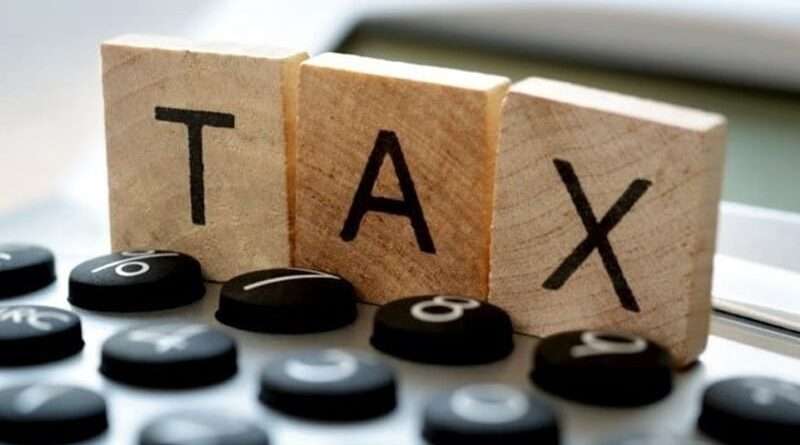Traders Urge Tax Base Expansion and End to Amnesty Schemes
|
Getting your Trinity Audio player ready...
|
As Pakistan faces an increasing tax shortfall that is predicted to reach approximately Rs400 billion by the end of December 2024, the All Pakistan Business Forum (APBF) is calling for the broadening of the country’s tax base. The forum is urging the government to implement legislation that will ensure all sectors, including agriculture, contribute fairly to the tax pool. This call for reform comes at a crucial time, as the Federal Board of Revenue (FBR) struggles to meet its tax collection target for the fiscal year 2024-2025.
Tax Collection Shortfall: The Growing Concern
Tax Collection for FY 2024-2025 Faces Major Deficit
Despite a growth of 23% in tax collection during the first five months of the fiscal year 2024-2025, the FBR’s tax receipts stand at Rs4.29 trillion, falling short of the target of Rs4.64 trillion. To meet the annual target of Rs13 trillion, the FBR needs a massive 40% growth in the remaining months of the year. According to APBF President Syed Maaz Mahmood, this gap poses a significant challenge for the economy.
Mahmood pointed out that the IMF’s assessment of the tax collection performance by December would determine if Pakistan could implement a new, tax-heavy budget. He highlighted the IMF’s pressure to include agricultural income in the tax net, which could potentially boost revenue collection. Without such inclusion, Mahmood warned that the burden would likely shift back onto the industrial sector, exacerbating financial stress for businesses.
The Role of Agricultural Income in Tax Collection
One of the key areas of concern raised by Mahmood is the tax exemption enjoyed by the agriculture sector. The agriculture sector, which contributes a significant portion to the country’s GDP, remains largely untaxed. Mahmood emphasized that taxing agricultural income could provide a much-needed revenue boost to Pakistan’s national coffers. However, he acknowledged that it would take considerable time and legislative effort before agricultural income taxation would yield substantial results.
Impact of IMF’s Conditions on Pakistan’s Fiscal Policies
The IMF’s condition to include agricultural income in the tax net has been a point of contention for some time. The IMF argues that including this income in the tax system would improve the fairness of the tax collection process and reduce the overall tax burden on the industrial sector. The government’s ability to meet IMF conditions and enhance tax collection will be a determining factor in securing further funding from international lenders, including the IMF itself.
The Need for Reform in Pakistan’s Tax System
A Call for Ending Amnesty Schemes
In addition to advocating for the taxation of agricultural income, the APBF president called for an end to the practice of offering amnesty schemes for tax evaders. These schemes, which have historically allowed individuals and businesses to declare previously undisclosed income or assets without facing penalties, have been criticized for discouraging honest taxpayers. According to Mahmood, such schemes undermine the integrity of the tax system, encouraging tax evasion rather than compliance.
Instead of providing leniency to tax evaders, Mahmood recommended that the government introduce penalties for non-compliance. He proposed that laws be formulated to allow the government to seize local assets equivalent to the value of undeclared foreign assets. This would help ensure that individuals and businesses are held accountable for income that is not properly disclosed.
Penalties for Tax Evasion: A Necessary Step
Mahmood stressed the importance of introducing stringent penalties for those who evade taxes, suggesting that this would help curb the widespread issue of tax evasion in Pakistan. He also recommended that the government enact laws that would empower authorities to confiscate assets located abroad if the source of income cannot be verified. This would encourage a culture of transparency and accountability, he argued.
Streamlining Export-Oriented Industries
Another area of focus for Mahmood was the performance of Pakistan’s export-oriented industries. Despite the country’s abundant resources, exports have shown low growth in recent years. Mahmood attributed this decline to inefficiencies in regulations, procedures, and government support for the sector. He urged the government to streamline rules and regulations for export industries to help them become more competitive on the global stage.
By improving the ease of doing business for export-oriented industries, Pakistan could boost its exports and contribute significantly to the country’s economic stability. Mahmood believes that increasing exports will play a crucial role in bridging the gap between Pakistan’s revenue needs and actual collection.
Measures to Improve Energy Supply and Revenue Collection
Investing in the Energy Sector
One of the pressing issues facing Pakistan’s economy is the gap between energy supply and demand. Mahmood highlighted the importance of investing in the energy sector, particularly in the construction of dams and water reservoirs, as a long-term solution to energy shortages. He also emphasized the need to reduce tariffs on goods that are prone to smuggling, as this would help increase the tax base and reduce the overall burden on law-abiding businesses.
Increasing Direct Taxes: A Sustainable Solution
To address the ongoing revenue shortfall, Mahmood advocated for an increase in the share of direct taxes in the revenue mix. Direct taxes, such as income taxes, are typically more sustainable and equitable than indirect taxes, which disproportionately affect lower-income individuals. Mahmood suggested that reducing the slabs of indirect taxes would be beneficial for the overall economy, as it would ease the financial burden on the general public.
Focus on Thar Coal Deposits
In addition to investing in energy infrastructure, Mahmood proposed further exploration and utilization of Pakistan’s vast Thar coal deposits. These reserves, located in the southeastern part of the country, have the potential to provide a significant source of energy for Pakistan’s power generation needs. Developing this resource could reduce Pakistan’s reliance on imported energy and improve its energy security.
Conclusion: The Road Ahead for Pakistan’s Tax System
In summary, the All Pakistan Business Forum has outlined a number of key reforms that it believes will help Pakistan address its tax shortfall and achieve sustainable economic growth. These include broadening the tax base through legislation that includes agricultural income, ending amnesty schemes, and increasing penalties for tax evasion. Additionally, the APBF calls for more support for export industries, investment in the energy sector, and a shift towards a more equitable and sustainable tax system.
FAQs
1. What is the current tax collection shortfall in Pakistan?
Pakistan’s tax collection shortfall is expected to reach approximately Rs400 billion by the end of December 2024.
2. Why is the agriculture sector not taxed in Pakistan?
The agriculture sector is largely exempt from taxes in Pakistan, despite contributing significantly to the country’s GDP. The APBF advocates for the inclusion of agricultural income in the tax net to improve revenue collection.
3. What is the APBF’s stance on amnesty schemes?
The APBF calls for the abolition of amnesty schemes, as they encourage tax evasion and undermine the efforts of honest taxpayers. They recommend the introduction of penalties for tax evaders instead.
4. How can Pakistan improve its exports?
Pakistan can improve its exports by streamlining regulations and procedures for export-oriented industries and providing better support to these sectors to enhance their global competitiveness.
5. What is the APBF’s recommendation for addressing energy shortages?
The APBF recommends investing in the construction of dams, water reservoirs, and the utilization of Thar coal deposits to address Pakistan’s energy shortages and ensure long-term energy security.
ALSO READ:
https://skipper.pk/2024/12/08/gold-prices-fall-rupee-appreciates-open-market/




